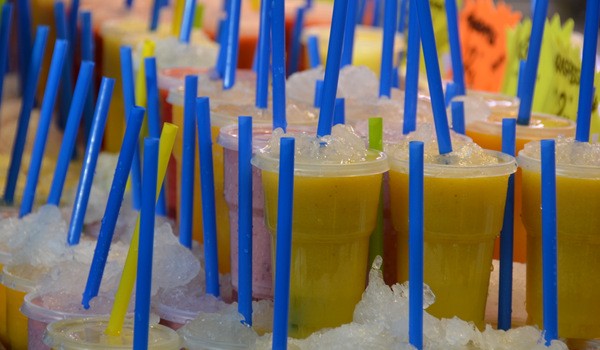Drinking fruit juices linked to risk of type 2 diabetes reveals study

A survey by health group Action on Sugar has revealed that many fruit juices contain more sugar than Coca-Cola.
The survey was conducted by Jane Boulton, a third year dental hygiene therapy student at Liverpool University Dental Hospital, who examined over 200 fruit juices, juice drinks and smoothies.
The study focused on fruit drinks aimed at children and analysed the sugar content of both supermarket-owned and branded drinks stocked by Tesco, Asda, Sainsbury’s, Waitrose, The Co-operative, Ocado and Morrisons.
The results found that 25% of children’s juices within this large sample contained the maximum recommended daily intake of sugar for adults, and that many held more than the 21.2g per 200ml similar to Coca-Cola.
The worst offending juice was Asda’s Chosen by Kids Tropical Juice from Concentrate, which included 26g of sugar per 200ml, while Tesco’s Goodness Slurper Apple and Banana for Kids contained 32.2g, or eight teaspoons of sugar per 200g.
Speaking on the implications of sugary drinks, cardiologist Dr Aseem Malhotra said: “It is not just tooth decay but there is increasing scientific evidence that regular sugary drink consumption is associated with an increased risk of type 2 diabetes and heart disease, independent of body weight, suggesting we are all vulnerable. Fruit juice and smoothies should not be part of a healthy balanced diet.”
Current guidelines state that one 150ml glass of unsweetened 100% fruit juice can count as a portion. Juices can only count as a maximum of one of your five-a-day, however in light of studies such as this one, Action on Sugar is calling for this to be scrapped.
In response, Dr Alison Tedstone of Public Health England claims: “Fruit juice is a useful contribution towards our five-a-day, however, because the process of juicing releases sugars from the fruit we recommend that you try to limit your fruit juice to 150ml a day.”
Rowan Frewin
Photo: Aastha Gill























Facebook
Twitter
Instagram
YouTube
RSS